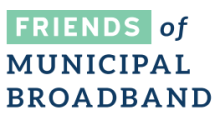Rally In Richmond Wednesday To Oppose HB 2108
Folks in rural Virginia who dream about better connectivity woke up this legislative session to a pending Internet access nightmare - and they’re not going to just lie there and take it.
Delegate Kathy Byron (R-Campbell County) and her bill HB 2108 are the cause of consternation among people in Virginia who support the municipal network option. As we reported last week, the bill would have serious impact on the ability for local governments to pick up the slack left by national Internet Service Providers. Passage would make it all nearly impossible for local governments to provide better connectivity to their communities.
Taking It To Richmond
In order to bring awareness to the potential harm of HB 2108, people negatively impacted if it passes plan to rally in Richmond to make their voices heard. The grassroots group, Friends of Municipal Broadband will livestream the event on their Facebook page. The rally will happen Wednesday, Jan. 18, at 9:30 a.m. EST.
According to the announcement, people are gathering at the House Briefing Room at the Virginia Legislative Office Building, 1000 Bank Street in Richmond. They ask participants to use the entrance on 10th and Bank Streets and give themselves extra time for security checks.
Get Informed
Friends of Municipal Broadband have created a petition and are encouraging Virginians to call Delegate Byron to express their displeasure about HB 2108 at (434) 582-1592. You can also check out the Friends of Municipal Broadband website for more on the event and resources about the bill.
You can also arm yourself with information about munis in Virginia by downloading our fact sheet on the benefits of municipal networks in Virginia. As always, we want you to share the fact sheet far and wide to help others make informed decisions.



